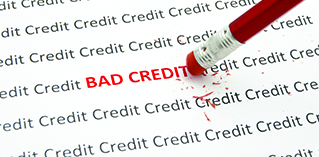Great credit opens doors to low interest rates, loan approvals, and better prices on things like car insurance. On the other hand, bad credit may make it impossible to get financing, and it may even influence a job search. Repairing credit is a vital project if you’re considering applying for a mortgage, thinking about buying a car, or looking at a new credit card.
The process isn’t instant, and it will take consistent attention paid to credit health; however, the results will be well worth it when you get the keys to your first house or drive off in a new vehicle while enjoying terrifically low interest rates.
Simple First Steps
At the beginning of the credit-repair process, you’ll want to handle a few pieces of housekeeping. These small tasks will help you create a plan for long-term success. Your first step is to read your credit report, from top to bottom.
Everyone knows what a credit score is yet many people never check on that number or the credit report that influences that number. You can request a free copy once a year of your credit report from each of the 3 main credit reporting agencies:
- TransUnion
- Equifax
- Experian
If you’re trying to repair your credit, you probably already know that the report is going to be in bad shape. However, that’s not why you want to look at it. Your goal in this phase is to find errors and get them corrected. If you find mistakes on your report, you or your credit repair agency can contact creditors or the credit bureaus to get those errors removed from your record.
Secondly, you’ll want to make a list of each creditor, your interest rate, and the amount owed. You’ll want to know these numbers when you discuss credit repair options with a credit repair agency.
Intermediate Challenges
The first major goal any credit repair odyssey requires is debt reduction. You may be able to reduce debt in a variety of ways beyond traditional monthly payments. For example, if you have debts that have been charged-off or sold to a debt collector, it’s very possible that you could arrange to pay less than the full balance on those debts.
Note that paying less than the full balance on a debt may negatively impact your credit score for the short term. However, if your debts are large and your only alternative is bankruptcy, making payment arrangements might be the best option, even if your credit score is harmed in the beginning.
You may be able to arrange to have your creditor report the balance simply as “paid” by negotiating skillfully with the creditor. It is at this stage where a credit repair company might be most useful since they’re used to this type of negotiation.
Some options available for reducing debt and repairing credit include:
- Negotiating lower interest rates to facilitate swifter payoffs
- Making payment arrangements with overdue accounts
- Maintaining on-time payments
- Contacting creditors to request negative marks are removed from a report
Long-Term Goals and Avoiding Mistakes
Long-term credit health requires that you sustain low debt, maintain on-time payments, and remove all of the negative marks on your credit report. For anyone with a poor credit history, this process may take years.
There are also a few things you need to avoid that will ensure your efforts at improving your credit score aren’t unintentionally sabotaged.
- Don’t move debts around to a different credit card
- Don’t open new cards to create more available credit
- Try to avoid closing old accounts
Remember that fixing your credit is a laudable goal, but that maintaining good credit also takes work. Your long term goals for credit repair should include a discussion on the methods you’ll use to keep that score high and healthy.


Recent Comments